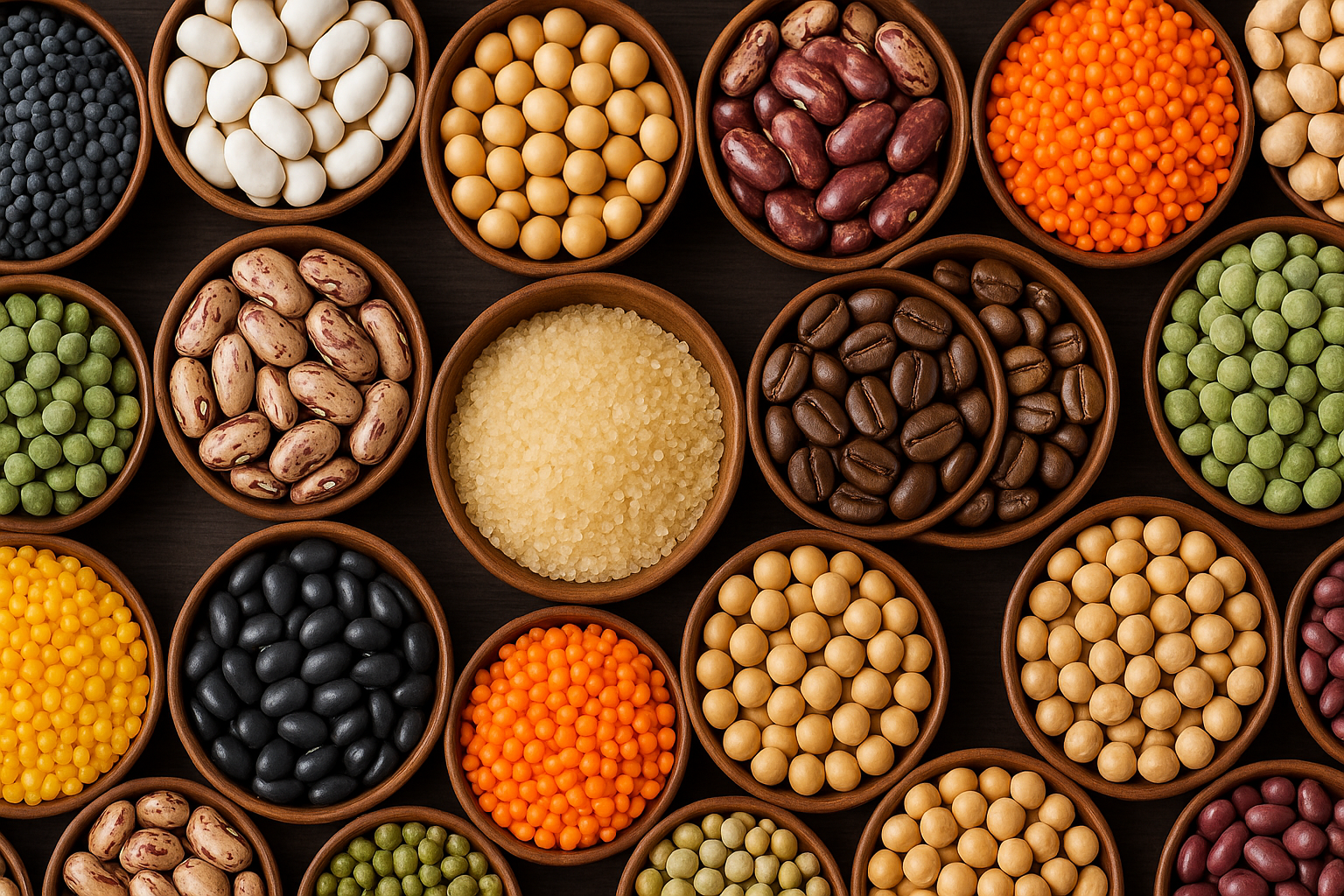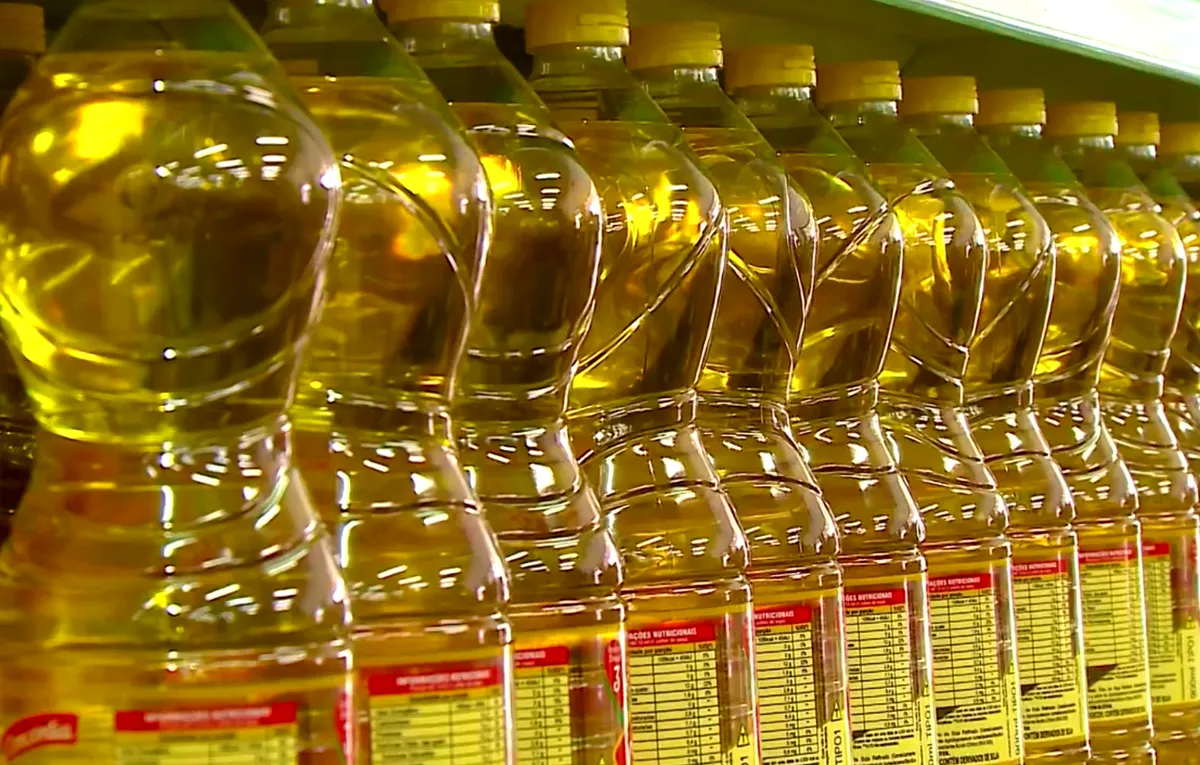
Brazil, the World’s Food Bank! A strategic guide for smart importers – with data that will shock even market veterans.
Did you know that 1 in 3 foods consumed in the world today comes from Brazil?
Brazil has solidified its position as a global powerhouse in food production, earning the title of the “world’s food bank.” With vast arable land, favorable climate, and advanced agricultural technology, the country has become the leading supplier of key commodities like soy, sugar, coffee, and meat. If you’re in the food import business, understanding how to tap into Brazil’s agricultural wealth is essential to staying competitive in the global market.
Contents
The Brazilian agribusiness sector plays a crucial role in feeding the world. As one of the top exporters of agricultural commodities, Brazil supplies a significant portion of the global demand for beef, poultry, corn, and coffee. The country’s ability to produce large quantities at competitive prices makes it an attractive source for importers worldwide.
According to data from the Brazilian Ministry of Agriculture, Brazil exported over 100 million tons of soybeans in 2023, maintaining its status as the world’s top soybean supplier. The country also leads in sugar exports, supplying nearly 50% of the global sugar market. Additionally, Brazil is the largest exporter of halal-certified poultry, meeting the growing demand in Middle Eastern and Asian markets.
Brazil’s agricultural success is attributed to several key factors:
Favorable Climate and Rich Soil: The country’s vast and fertile land allows for year-round production of essential crops.
Cutting-Edge Technology: Brazilian agribusinesses have embraced modern farming techniques, including precision agriculture, genetically improved seeds, and sustainable farming practices.
Strong Export Infrastructure: With an extensive network of ports, highways, and railways, Brazil efficiently exports its agricultural goods to global markets.
Diverse Production Capacity: The country produces a wide range of agricultural products, from grains and fruits to high-quality meats, allowing importers to source multiple commodities from a single supplier.
While Brazil offers immense opportunities for food importers, navigating the market can be challenging. Language barriers, regulatory requirements, and supplier reliability are common concerns for international buyers. However, those who successfully establish relationships with reputable suppliers gain access to high-quality products at competitive prices.
Brazil has one of the most extensive agricultural supply chains in the world, but logistical challenges still exist. The country has made significant investments in transportation infrastructure, but bottlenecks at ports and inefficiencies in inland freight transportation can sometimes cause delays. Importers should plan ahead and work closely with experienced logistics providers to ensure smooth deliveries.
Importers must ensure that Brazilian suppliers meet international quality standards. Many agricultural products require certifications such as:
ISO 9001 & ISO 22000 for food safety
HACCP (Hazard Analysis and Critical Control Points) for risk management in food production
Halal & Kosher Certifications for specific market requirements
Working with certified suppliers ensures compliance with import regulations and reduces the risk of shipment rejections.
For importers looking to source from Brazil, finding trustworthy suppliers is essential. The Mello Commodity Supplier Guides provide comprehensive directories of verified Brazilian exporters, helping businesses connect with reputable partners in the industry. These guides simplify the sourcing process, reducing risks and ensuring access to top-quality agricultural products.
Many successful importers have leveraged these guides to establish long-term partnerships with Brazilian suppliers. For example, a European food distributor specializing in organic produce successfully expanded its product line by using the Mello Commodity Supplier Guides to find certified organic fruit and vegetable producers in Brazil.
Brazil’s agricultural exports have transformed businesses worldwide. One notable case is a Chinese meat distributor that shifted its sourcing strategy to Brazil due to rising costs in other markets. By partnering with Brazilian beef and poultry suppliers, the company was able to reduce procurement costs by 20% while maintaining high product quality.
Another example is a Middle Eastern food importer that sought a reliable source of halal-certified chicken. By connecting with Brazilian suppliers through trusted sourcing guides, the company secured long-term contracts that enabled stable supply chains and expanded market reach.
As global demand for food continues to rise, Brazil is expected to strengthen its role as a key player in the international market. Innovations in sustainable farming, advancements in logistics, and growing trade agreements will further solidify the country’s position as the world’s food bank.
Brazil is investing heavily in sustainability, with initiatives such as reforestation programs, carbon-neutral farming, and precision agriculture that reduces waste. These advancements make Brazilian agricultural products even more attractive to importers who prioritize environmental responsibility.
Brazil’s position as a global food supplier is stronger than ever, with vast agricultural resources, advanced technology, and efficient export infrastructure. Importers looking to secure high-quality agricultural commodities should explore the opportunities Brazil has to offer.
By leveraging Brazil’s agricultural resources and partnering with trusted suppliers through the Mello Commodity Supplier Guides, food importers can secure a steady supply of high-quality commodities, enhancing their business growth in the competitive global market. Whether sourcing soy, meat, sugar, or specialty foods, Brazil remains a top choice for importers worldwide.
Mello Commodity publishes educational articles that aim to guide importers of agricultural commodities on: Brazilian crops, market information, prices, scams, etc.
Some articles may contain affiliate links that provide access to several SUPPLIER GUIDES for Brazilian agricultural commodities. The commission paid to the Mello Commodity team is used to cover production costs and will not impact the cost of acquiring the material.
If you are interested in negotiating the direct import of sugar, soybeans or yellow corn, simply click on the Quotation menu and send us your order details.

Brazilian, graduated in Marketing, Specialist in Service Management and Strategic Communication.
Important International Negotiator in the commercialization of Brazilian agricultural commodities such as: Sugar, Soybeans and Corn.
Owner of Mello Commdity, she has gained great prominence on the internet in recent years by promoting educational articles for importers of Brazilian agricultural commodities.
#Agricultural commodity price tables #Brazilian suppliers guide #Commodities 2024 #Commodities 2025 #Digital Agriculture #food bank #Food insecurity #food security #green gold #Import safely #Largest Brazilian exporters #Largest Brazilian suppliers #Perdix Chicken #perdix chicken brazil #Prices by commodity #Smart Import #Sugar Price Charts #Supplier catalog
Comments are closed.
 How to Import Agricultural Commodities from Brazil Safely and Profitably
How to Import Agricultural Commodities from Brazil Safely and Profitably Bangladesh Sugar Imports: A Global Success Case Study
Bangladesh Sugar Imports: A Global Success Case Study Coup plotters are everywhere in international trade. Protect your international businesses with the Agricultural Commodities Suppliers Guide
Coup plotters are everywhere in international trade. Protect your international businesses with the Agricultural Commodities Suppliers Guide Oil Exporters in Brazil – Business Opportunities and Global Markets
Oil Exporters in Brazil – Business Opportunities and Global Markets
Very interesting and well-structured article!
The website is an amazing platform for learning
new things.